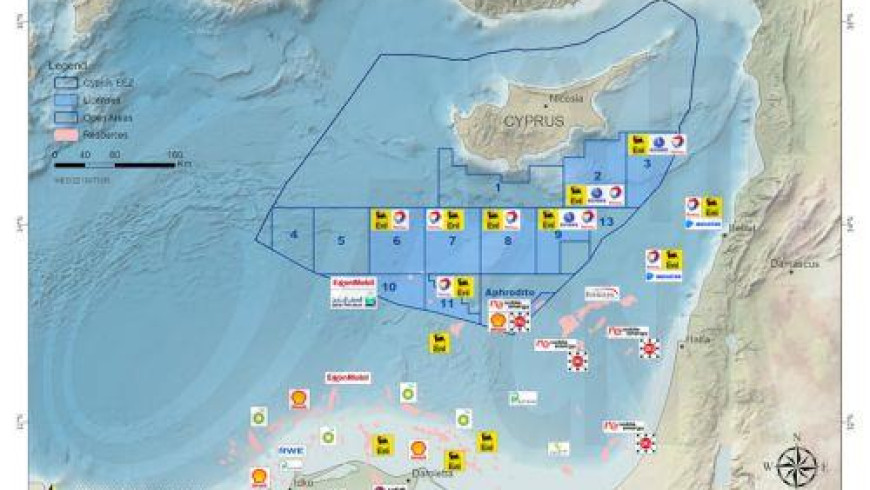
The restrained expenses and the increased revenues are significant factors for the achievement of better financial results in the banking sector. The staff cost is an inseparable and tough part of the expenses and the banks are making every effort to control it, ‘freezing’ employment and adopting early retirement plans.
The highest cost per employee is seen in the Hellenic Bank, since the Bank of Cyprus and the Popular Bank are benefited by their presence in Greece, where the labour cost is lower (younger employees = less demands). The staff cost per employee in the Hellenic Bank in the first half of 2006 stood at £16.37 thousand against £15.33 thousand in the corresponding period of 2005 (+6.8%). The total staff cost stood at £29.9 million against £28.1 million in 2005. The total number of employees in the Hellenic Bank as at June 30, 2006 amounted to 1,823 against 1,833 on June 30, 2005. The total staff in Cyprus reached 1,439 and in Greece 384 persons.
On the other hand, according to the data collected by CLR Financial Services on behalf of StockWatch, the Bank of Cyprus has the lowest cost per employee in the first half of 2006 (£12,29 thousand against £12,34 thousand in 2005) due to the lower salaries in Greece. The total staff cost of the bank recorded an annual increase of 1% to £75 million due to the drop in the operating cost in Cyprus. This drop is also linked to the reduction in the number of employees in Cyprus by 47 and the low contributions to the staff retirement fund.
The cost per employee in the Popular Bank dropped 4.6% to £13.15 thousand against £13.78 thousand in the first half of 2005. It is worth noting, however, that the first half of 2006 is largely affected by the contribution to the cost and the number of staff by the Serbian Bank. The total staff cost in 2006 stood at £51.48 million against £46.3 million in 2005, while the staff expenses increased by 7% due to the annual salary raises and the contributions to the retirement funds. The number of employees in Cyprus dropped from 2,421 to 2,402. Outside Cyprus, the staff expenses recorded an increase of 25.2% due to the increase in the number of employees, which was deemed necessary for the proper operation of the bank. In Greece, the number of employees stands at 912, in Australia at 120 and in Serbia at 338.
Turnover
According to latest figures, the Bank of Cyprus has the most productive staff since it has the highest turnover per employee. Although the Hellenic Bank has the lowest turnover per employee, it managed to improve its position compared to 2005.
Specifically, the turnover per employee in BOC showed an increase of 14.8% to £72.65 thousand compared to £63.26 thousand in the first half of 2005. Similarly, the turnover per employee in CPB surged 6.3% to £66.71 thousand against £62.75 thousand in the corresponding period of 2005 and in HB it soared 24.4% to £66.01 thousand against £53.03 thousand in 2005.
The highest cost per employee is seen in the Hellenic Bank, since the Bank of Cyprus and the Popular Bank are benefited by their presence in Greece, where the labour cost is lower (younger employees = less demands). The staff cost per employee in the Hellenic Bank in the first half of 2006 stood at £16.37 thousand against £15.33 thousand in the corresponding period of 2005 (+6.8%). The total staff cost stood at £29.9 million against £28.1 million in 2005. The total number of employees in the Hellenic Bank as at June 30, 2006 amounted to 1,823 against 1,833 on June 30, 2005. The total staff in Cyprus reached 1,439 and in Greece 384 persons.
On the other hand, according to the data collected by CLR Financial Services on behalf of StockWatch, the Bank of Cyprus has the lowest cost per employee in the first half of 2006 (£12,29 thousand against £12,34 thousand in 2005) due to the lower salaries in Greece. The total staff cost of the bank recorded an annual increase of 1% to £75 million due to the drop in the operating cost in Cyprus. This drop is also linked to the reduction in the number of employees in Cyprus by 47 and the low contributions to the staff retirement fund.
The cost per employee in the Popular Bank dropped 4.6% to £13.15 thousand against £13.78 thousand in the first half of 2005. It is worth noting, however, that the first half of 2006 is largely affected by the contribution to the cost and the number of staff by the Serbian Bank. The total staff cost in 2006 stood at £51.48 million against £46.3 million in 2005, while the staff expenses increased by 7% due to the annual salary raises and the contributions to the retirement funds. The number of employees in Cyprus dropped from 2,421 to 2,402. Outside Cyprus, the staff expenses recorded an increase of 25.2% due to the increase in the number of employees, which was deemed necessary for the proper operation of the bank. In Greece, the number of employees stands at 912, in Australia at 120 and in Serbia at 338.
Turnover
According to latest figures, the Bank of Cyprus has the most productive staff since it has the highest turnover per employee. Although the Hellenic Bank has the lowest turnover per employee, it managed to improve its position compared to 2005.
Specifically, the turnover per employee in BOC showed an increase of 14.8% to £72.65 thousand compared to £63.26 thousand in the first half of 2005. Similarly, the turnover per employee in CPB surged 6.3% to £66.71 thousand against £62.75 thousand in the corresponding period of 2005 and in HB it soared 24.4% to £66.01 thousand against £53.03 thousand in 2005.














 3287.99
3287.99 1275.09
1275.09

